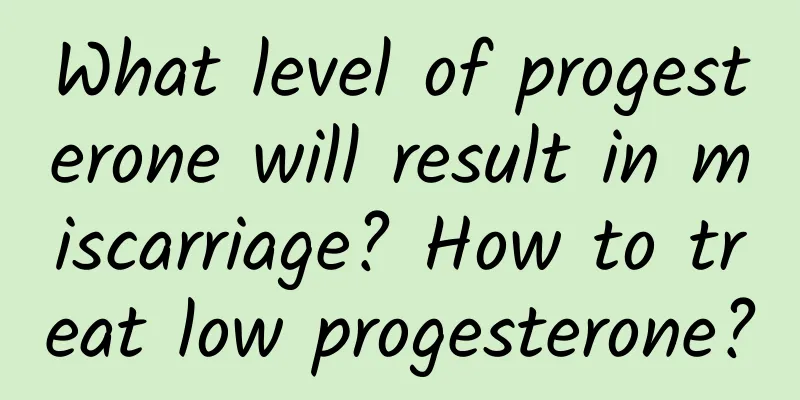What are the causes of habitual miscarriage?

|
Habitual miscarriage troubles more and more women in life, causing great physical and mental harm. There are many reasons for habitual miscarriage. Today, the editor will explain to you the causes of habitual miscarriage. I hope everyone will pay more attention to it in the future and prevent it before it happens. The main causes of habitual miscarriage are as follows: First, pregnant women suffer from acute infectious diseases such as influenza, typhoid fever, pneumonia, etc., bacterial toxins or viruses enter the fetus through the placenta, causing fetal poisoning and death. High fever can promote uterine contraction and cause miscarriage. Pregnant women with chronic diseases such as severe anemia, heart failure, chronic nephritis and hypertension can cause fetal disability and miscarriage due to placental infarction and intrauterine hypoxia. Malnutrition of pregnant women, especially vitamin deficiency, as well as mercury, lead and alcohol poisoning can all cause miscarriage. Second, endocrine dysfunction. The fertilized egg can implant on the uterine wall and grow into a fetus under the action of progesterone. When the body secretes insufficient progesterone, the uterine decidua will be underdeveloped, thus affecting the development of the fertilized egg and easily causing miscarriage. If prostaglandins increase, it will cause frequent contractions of the uterine muscles, which can also lead to miscarriage. Reduced thyroid function can cause cell oxidation capacity disorders, thereby affecting the growth and development of the embryo and causing miscarriage. Third, reproductive organ diseases. Uterine malformations such as bicornuate uterus, septate uterus, and uterine hypoplasia. Pelvic tumors, especially submucosal fibroids, can affect the growth and development of the fetus and lead to miscarriage. Uterine os relaxation or deep cervical lacerations can cause premature rupture of membranes and late miscarriage. Sudden emotional changes. Pregnant women are greatly stimulated, and excessive sadness, shock, fear, and excessive emotional excitement can cause environmental imbalance in the pregnant woman's body, prompting uterine contraction and causing miscarriage. Fourth, incomplete embryonic development and abnormal fertilized eggs are the main causes of early miscarriage. About 80% of miscarriages in the first two months of pregnancy are due to some defects in sperm and eggs, which cause the embryo to develop to a certain extent and then terminate. Therefore, the original embryonic tissue cannot be seen in the discharge of this type of miscarriage. Fifth, trauma. The abdomen of pregnant women is hit or squeezed by external forces, or pregnant women fall or participate in heavy physical labor or intense sports. Abdominal surgery such as appendicitis or ovarian cyst surgery can cause uterine contraction and miscarriage. Placental dysplasia. The fetus grows and develops in the mother's body, and the mother's nutrients and oxygen are mainly transported to the fetus through the placenta. If the placenta is maldeveloped or diseased, the fetus cannot get nutrients and oxygen and stops growing, causing miscarriage. Incompatibility of maternal and fetal blood types. Pregnant women have received blood transfusions in the past, or coagulant factors that are incompatible with blood types are produced during pregnancy, which will cause the fetus's body cells to agglutinate and hemolyze, thereby causing miscarriage. |
<<: How to arrange diet after childbirth
>>: Causes of Spontaneous Abortion
Recommend
Here are some treatments for vaginitis
Vaginitis is a very common gynecological inflamma...
What should women eat after uterine fibroid surgery? 7 questions women should pay attention to after uterine fibroid surgery
Women with uterine fibroids need to spend a lot o...
Analysis of two common causes of ectopic pregnancy
It is very beneficial for female friends to under...
Slim hips for free by pressing the outer side of the thigh bone
As spring arrives and flowers bloom, the temperat...
Improve metabolism and burn fat ~ These 3 fruits with yogurt will help you lose weight quickly
To lose weight, you don’t have to go on a diet or...
How to cure chocolate cyst
Will a chocolate cyst go away on its own? Patient...
How to eliminate ovarian cysts in pregnant women? What are the hazards?
The treatment of gynecological diseases in pregna...
Get rid of metabolic syndrome and take action! Three must-learn exercise prescriptions to prevent three highs
If your waistline is too thick, your blood pressu...
What causes adenomyosis and how to treat it
Adenomyosis is a common gynecological disease. Th...
How to cure cervical erosion
Cervical erosion is a common gynecological diseas...
The latest 1:1 anti-aging walking method to prevent brain degeneration
Do you have any of the following situations? &quo...
Which hospitals are good for treating congenital absence of vagina
When a patient is ill, he or she will entrust him...
Can cervical warts be cured?
With the increase of unclean sex life, the number...
Experts analyze the main causes of pelvic inflammatory disease
Among many gynecological diseases, the incidence ...
Are you also a fat "belly dad"? I'm afraid it's "this" that's causing the trouble! Medical Explanation: 4 Signs of Male Hormone Imbalance
Are you also a fat "belly dad"? Be care...









